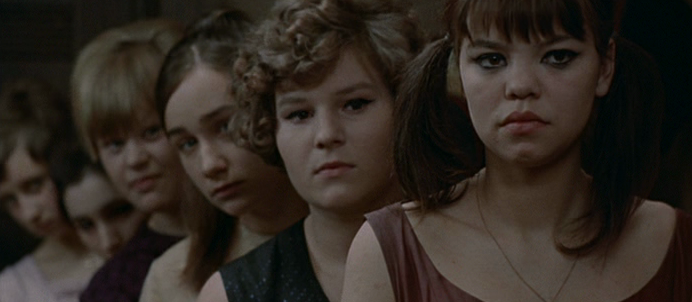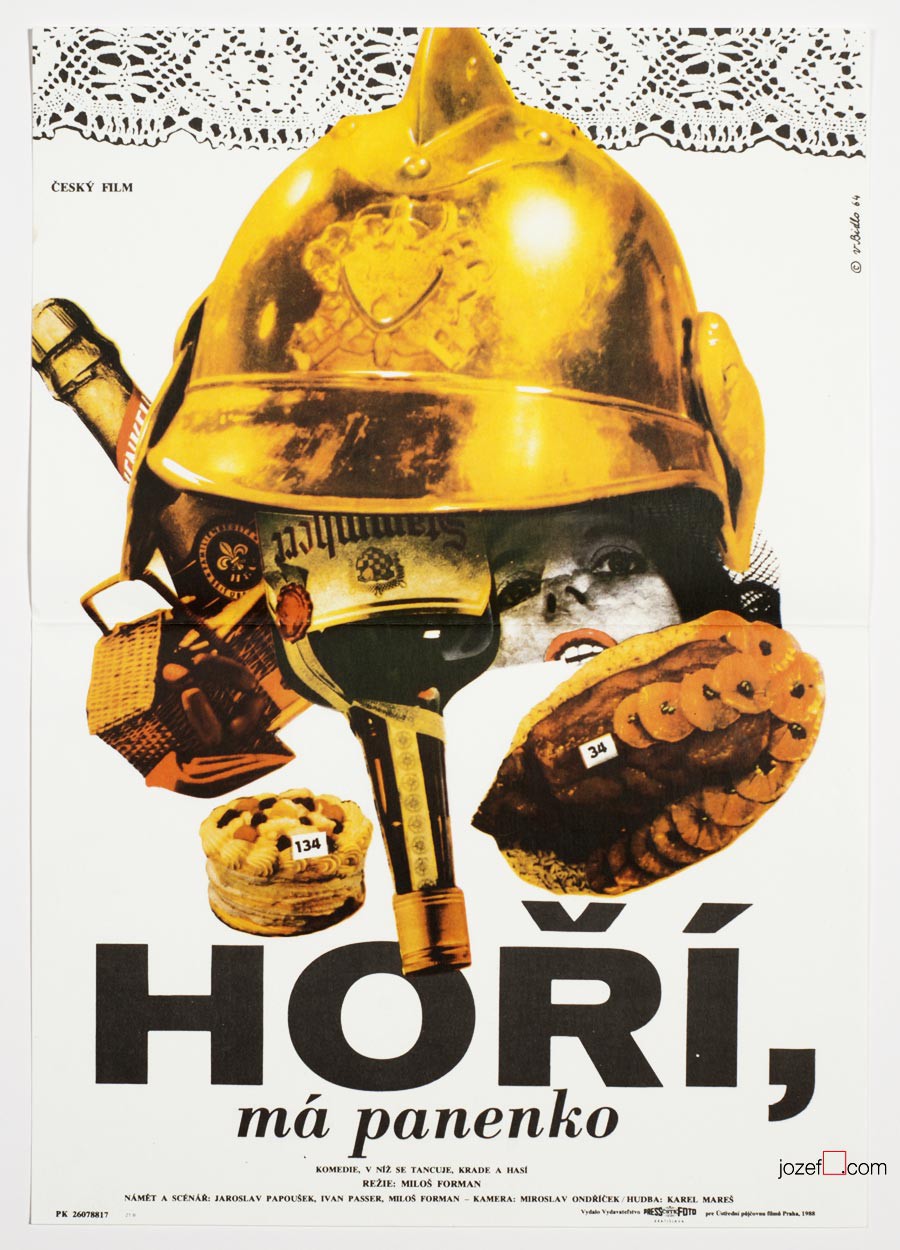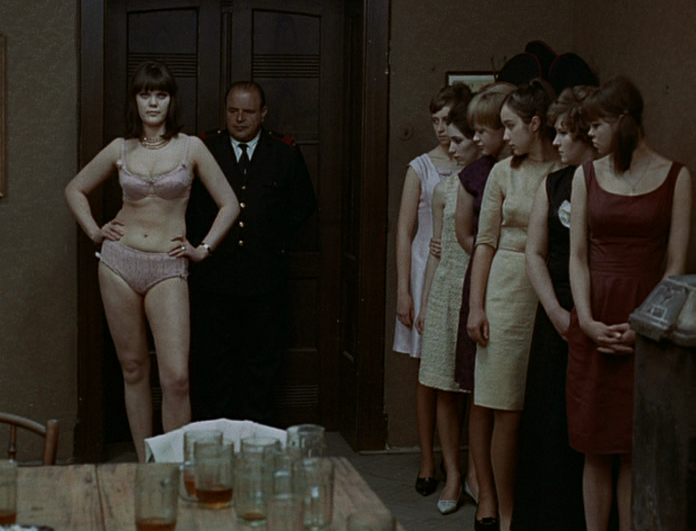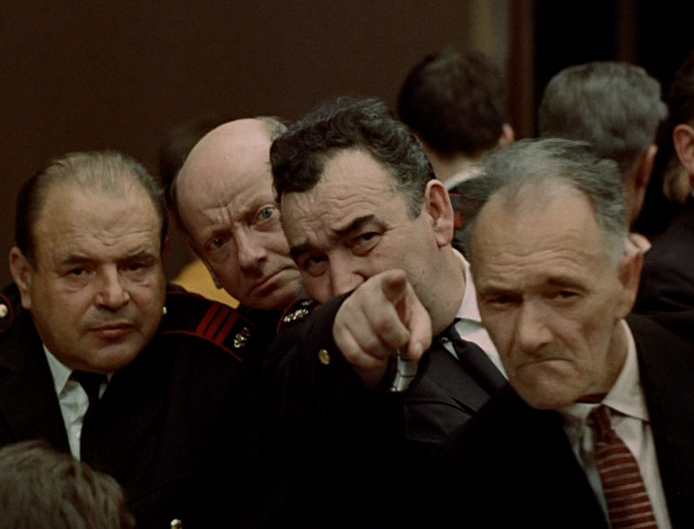

“We should have given it to him last year, instead of now when he’s about to die.”
Miloš Forman’s The Firemen’s Ball drew harsh criticism from Czechoslovakia’s Communist government due to the film being viewed as a subtle critique of the Soviet system. It is the story of a tragicomic send-off party for an aging fireman in which planning committees fail to adequately plan, all of the raffle prizes are pilfered, the beauty contest judges are bribed, and the contestants refuse to participate. It’s more of a satire than a comedy, and some of its risqué elements are no longer as scandalous as they would have been in 1967, but the film is a very good low budget piece, blending humorous mishaps with the worst of human tendencies into a heartfelt and touching film that barely passes the hour mark. It was Forman’s first film in color, and due to the reception, his last film in his native land before he moved to America.
The committee sets out with the best intentions: honoring the old retired chief. Of course, they meant to do so last year, but just never got around to it. Now, they must think of the reaction to a party thrown in the chief’s honor only after learning that he is dying of cancer. Stuck in between the rock of social expectations and the hard place of kindness, the committee moves forward with the ball. There will be lots of food, drawing for prizes, a beauty contest. The whole town will come to honor the man.

But things start to go wrong before the ball even begins. The night before the fête, one of the prizes goes missing. The accused committee member defends himself by demonstrating that he had been securing the ladder for his partner, who is at the top of it hanging a banner in the ballroom. But when his foot briefly moves away from its position of support and the ladder stays in place, the accuser doubles down on his accusation. Almost as soon as they step away to argue the ladder slides out from under the banner-hanger, leaving him dangling twenty feet in the air. The banner catches fire, and the two daft firemen ineffectually try to use a fire extinguisher, leaving their fellow hanging on for his life. Absurdist moments like these come along every few moments in The Firemen’s Ball, which was originally titled It’s Burning, My Darling in Czech; a much more fitting title, in my opinion.
At the ball, the mothers of the beautiful girls—the ones that the committee members wish to ogle—want their daughters to have nothing to do with any sort of beauty contest. But parents of less aesthetically endowed girls are happy to pay for their daughters to be entered into the contest, or to ply the judges with drinks. In a back room, the judges hold their heads in their hands as young women with second-tier looks are paraded before them. Perhaps they’d look better in swimsuits, they think. One girl is wearing one under her clothes, and she hastily strips. But it isn’t fair that only one of them can wear a swimsuit, is it? Then there is a knock at the door to see what the hold up is, and the senior firemen hastily help the scantily clad girl back into her dress.

An old man’s house catches on fire, and the sirens interrupt the party, but the fire truck gets stuck in the snow and everything but a few pieces of furniture are reduced to ash and ruin. It is decided that the raffle prizes will all be donated to the old man, but they discover that most of the items have been stolen. With so many of the prizes missing, the committee decides to announce the series of thefts publicly, then turn off the lights and allow the thieves a chance to return the stolen goods anonymously. When they do so, and the lights come back on, the rest of the prizes are missing. The committee then decides to ignore the old man and finish the party by presenting the retired chief with a special symbolic gift—a ceremonial axe. It’s no surprise that when he opens the box, the axe is also missing.
Forman uses a number of tactics and styles that would become a trademark in his later films such as One Flew Over the Cuckoo’s Nest, Hair, and Amadeus. Non-professional actors stuff the cast list, granting it a certain sheen of realism. The tone is comedic throughout, which plays curiously well against the more shocking and tragic moments. The film knows that it is funny, but darkly so. It doesn’t disguise the fact that these situations that give rise to laughter are often, at their core, very sad. Both the direction and the everyman cast serve to achieve this wonderful melancholy tinge. Many people consider this a comedy classic, but I found that I struggled to connect with some of the humor due to the language barrier. I still enjoyed it, obviously, but having to read the funny lines takes some of the immediate punch out them.

It is easy to understand why the film drew harsh criticism from the Communist regime in Czechoslovakia, with its implied critique of the decadence of high society, the ineptitude of those in charge, and the backward sense of what is important, capped by the failure of the department to perform their actual function of extinguishing a fire. The party that the committee planned was not for the retired chief or for the townspeople, but, of course, for themselves. People blatantly steal from one another without remorse and the appearance of integrity is more important than the virtue itself. In response to the criticism, the film’s original financier pulled out, leaving Forman without a distribution deal. It wasn’t until French New Wave director François Truffaut purchased the rights and had it distributed in the West that the film became successful.
Forman denied that the film was allegorical, but like most good artists, his work was inherently tinged with his real worldview. After the sour reception of The Firemen’s Ball, the director packed up his tent and moved to the United States, where he wasn’t constrained by what he could put in his movies. Throughout the rest of his career, he would make films about characters—Andy Kaufman, Mozart, Larry Flynt—who beat the system, choosing to do and say what they pleased, just as he did by moving to America.
Sources:
Horak, Jan-Christopher. “Revisiting The Firemen’s Ball (Milos Forman, 1967)”. UCLA Film & Television Archive. 30 August 2019.